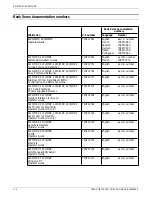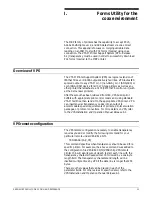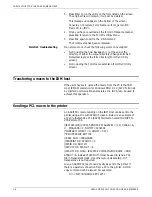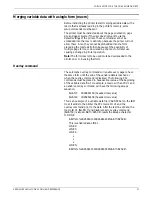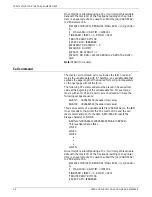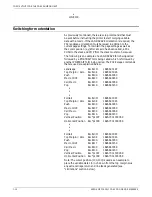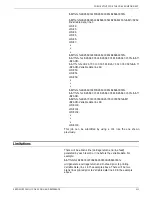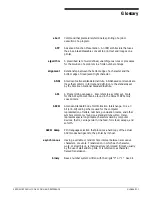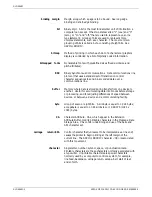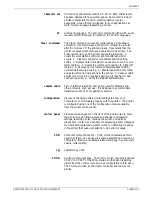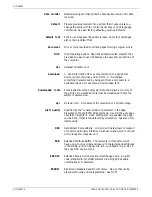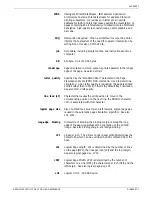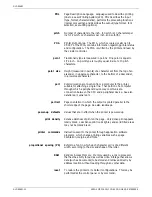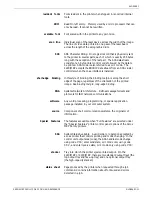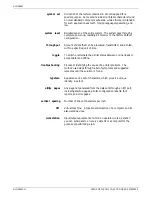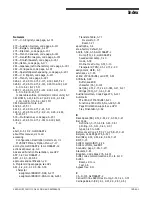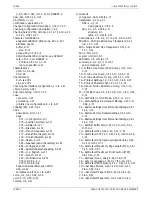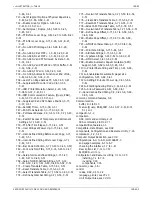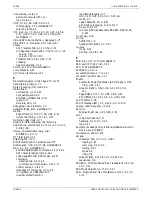
GLOSSARY
GLOSSARY-2
XEROX MRP FAMILY COAX COMMAND REFERENCE
binding margin
Margin along which a page is to be bound. See long-edge
binding and short-edge binding.
bit
Binary digit. A bit is the most fundamental unit of information a
computer can accept. It has two states called “1” (one) and “0”
(zero), or “on” and “off,” that are used to represent a yes or no
type statement. Groups of bits are used to represent more
complex statements, such as a character. The most common
grouping of bits is called a byte, consisting of eight bits. See
ASCII or EBCDIC.
bitmap
Method of printing in which each dot of a character or graphics
display is controlled by a bit of digitally coded information.
bitmapped fonts
Nonscalable fonts with predefined sizes (fixed point size and
pitch attributes).
BSC
Binary Synchronous Communications. Data communications line
protocol that uses a standard set of transmission control
character sequences to send binary coded data over a
communications line.
buffer
Memory where data is stored during transfer from one device to
another. Useful for accumulating data into blocks before storage
or processing, and for adjusting differences of speed between
devices, or between a device and a communicating facility.
byte
Group of seven or eight bits. A kilobyte is equal to 1,024 bytes;
a megabyte is equal to 1,024 kilobytes or 1,048,576 (1024 x
1024) bytes.
CA
Character Attribute. CAs, which appear in the Extension
Attribute Buffer, modify printable characters in the Message Data
Storage Area. CAs control underlining and use of the base and
APL character set.
carriage return<CR>
Control character that (unless set to be interpreted as a line end)
causes the printer to begin printing at the left margin of the
current line. The ASCII or EBCDIC character <CR> is associated
with this movement.
character
Single letter, number, symbol, space, or punctuation mark.
Printable characters are those characters normally associated with
a typewriter. Unprintable characters are special characters
normally used by a computer to control a system, for example,
line feed, backspace, carriage return, escape, bell, start of text,
and so forth.

